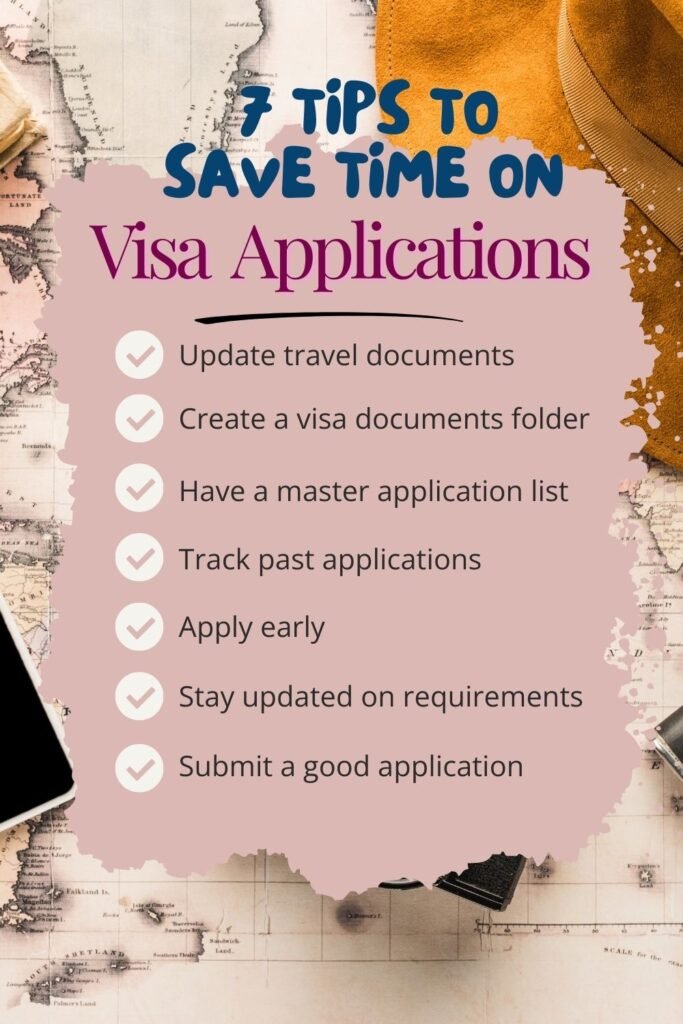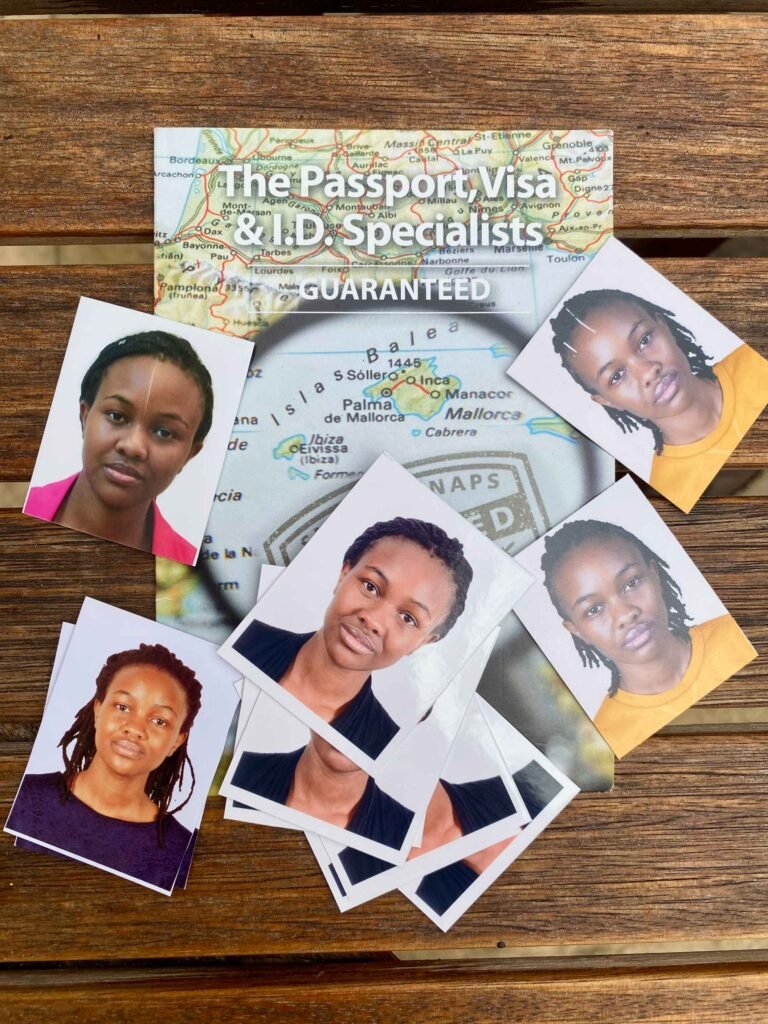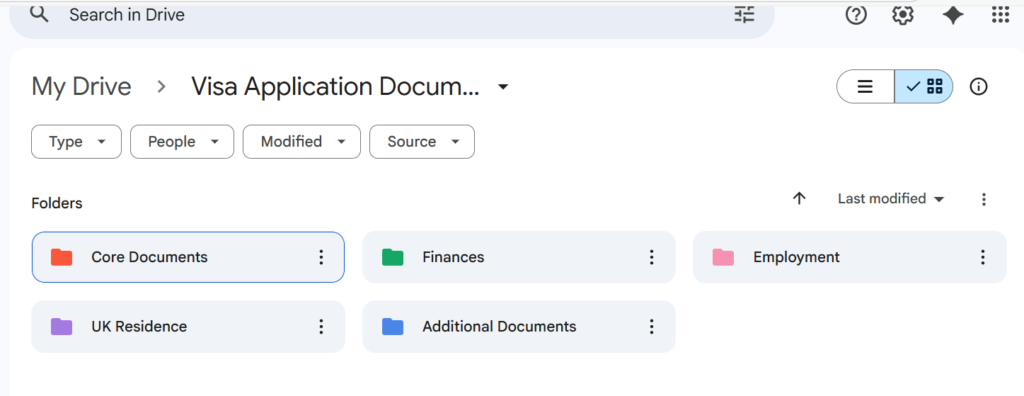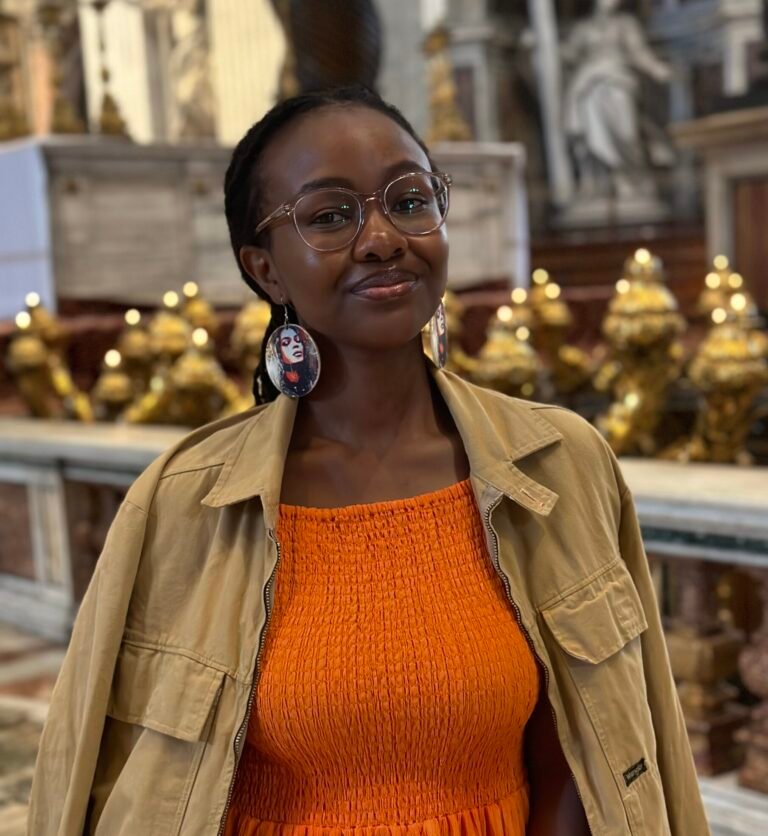Visa Application Tips to Help You Save Time and Stress on Your Next Trip
Preparing a visa application can come with stress, uncertainty and anxiety, especially when you are running out of time. This post shares proper preparation and smart organization system tips, so you can avoid last-minute panic and make any visa application process smoother.
I recently had to submit a visa application for an upcoming planned trip to South Korea. Even after travelling to 35+ countries, I was surprised how much time it took to prepare and compile all documents. I wasted so many hours re-downloading and updating documents, which led to panic. To make it worse, I ended up forgetting to submit one specific document. Let’s just say, there were a lot of sleepless nights.
Coming off that application, I have now built up some organizational systems to save myself time, money and stress on my next international trip.
Here are the 7 visa application time-saving tips I swear by:

1. Keep documents ready and updated
The first step of saving time with visas is having essential documents up to date. A lot of delays (and rejections) happen because travellers only notice something is missing or outdated when they’re mid application:
Here are a few things to keep on top of:
- Passport: Embassies will typically require at least 6 months validity beyond your return date – check your passport expiry date! Renewing a passport takes weeks and even months in some countries.
- Also, constantly confirm that you have enough at least 2 blank pages for visa stamps.
- Passport Photos: Have digital and printed passport photos that meet common standard requirements (plain white/off white background, neutral expression). Whenever I take passport photos, I make sure to pay for a batch of printed copies as well as the digital version. A lot of applications now require you to upload a digital photo, so always having a recent one will save you the time and costs of running to the shop.

- Financial Statements: You will typically require Bank statements, pay slips, and tax returns when applying. Even if you don’t need them now, download and save updated versions so you’re not stuck waiting for documentation. (See tip #2 on how to organize these)
- Supporting Documents: Depending on your reason for travel, these include employment letter, student enrolment letter, marriage certificate, property ownership, dependents birth certificates etc. Review and refresh these every few months so you’re not rushing to update them when deadlines are tight.
Think of this like your ‘visa emergency kit’. If an unexpected opportunity – a conference, event abroad – you’ll have everything to start applying immediately.
2. Have an organized visa document folder
One of the biggest time-savers I have discovered is keeping all visa application documents in one place. Instead of now starting from scratch and digging through emails or folders, I now have a go-to folder on my laptop and Google drive.
You can also consider having ready-to-go printed documents in a file. However, this may not work for documents where you need the latest versions e.g. bank statements.

Here’s what I have in my folder:
- Core documents: passport bio page scan, past visa scans, passport photos taken within last 6 months
- Financial Proof: I have a copy of the last 6 months of bank statements saved as PDFs. At the start of each month, I will add a copy of the latest statements
- Employment proof: I ask for an updated copy of a letter from my employer every quarter, Latest 6 months’ Salary Slips saved
- Additional Documents: Travel Insurance, UK Residence proof (Copy of share code), Rental Lease.
To keep everything clear, I have labelled each file with my name, type of document and date. This saves me so much time searching through documents. For example:
Becky_BankStatement_August 2025.pdf
Becky_Travel insurance_Validtill Jan 2026.pdf
Becky_EmploymentLetter_IssuedMar2025.pdf
Quick Tip: Back-up this visa folder on a cloud platform, like Google Drive, Dropbox or One Drive so you can access the documents anywhere – even when you’re on the road.
3. Create a master visa application documents checklist
A reusable master visa application checklist will save you lots of time when applying for multiple visas.
As you submit more applications, you will often find that the core documents (listed in tip #2) are consistent irrespective of the application country.
You can then adapt the master list accordingly for different countries, like UK, US and Schengen and different visa types.
You could also consider including different sections for purpose of travel (e.g. tourism, business, conference) in your master list and associated supporting documents. No matter what travel opportunity comes up – tourism or a conference – you’ll immediately know what kind of documents are needed.
4. Track past applications
A visa application tip that I previously underrated is really leveraging past knowledge and experiences. Create a log of all your past applications, including what documents you used and what the outcome was.
Whenever I complete a round of visa applications, I will move the relevant folder in my “Past Applications” folder.
This makes reapplying much faster as I know what worked before. It also helps me spot any patterns in my documents and applications e.g. what cover letters worked best for visa officers. If needed, I can also reuse documents submitted for one country in another country’s application.
Personal Experience: Whenever I have filled out a new UK visa application, I reference all my past UK visa application forms. This ensures (and gives me peace) that the information I have provided through the years is consistent. It’s amazing when you don’t have to scramble or wrack your brain wondering what you wrote in that one box in that application 5 years ago.
5. Be an early bird: start applications and appointment-searching early
This one’s a bit obvious; one of the best visa time-savings tips is applying early. I see travellers on social forums on Reddit and Facebook etc caught off-guard with how quickly visa appointment slots fill up.
Similarly, visa processing times fluctuate a lot, even more so during peak travel times (summer holidays, November – January). Therefore, early application = life saver.
Many countries will accept visa applications 3-6 months before date of intended travel. Take advantage of this and don’t wait for last-minute.
Applying early means:
- You avoid the stress of hunting down visa appointment slots
- You don’t have to pay extra for premium services of ‘priority’ processing.
- There is breathing room if embassy asks for additional documents or information.
- No panicking wondering whether you’ll receive your visa/passport in time for your travel date…or inevitably having to postpone/cancel a trip.
I’ve learned the importance of applying early the hard way – I had to cancel a previous Europe Summer trip because there wasn’t enough time for processing (Schengen visa requires 15 days minimum for processing). So, I have a post here on finding Schengen visa appointment fast when everything seems booked up. But, applying early is the first step to ensuring you don’t need these tips!
6. Stay Updated on Embassy Requirements and General Updates
Visa and embassy requirements change often. Even if you have applied in the past, don’t just assume that last year’s list or application will be valid. Embassies update requirements all the time, sometimes even without any big announcements
Before a visa application, I have made it a habit to research the official embassy/consulate websites months before. It takes me a few minutes only but can save time down the line.
Quick Tip: When preparing for a visa application, consider bookmarking official embassy visa pages so you can reference them. Also set regular reminders to check and confirm updated requirements.
If you’re part of any visa forums and travel groups, then keep an eye out for updates based on other traveller’s experiences. Just remember to verify these against the official source.
My Personal Experience: A few years ago, I planned a trip to Turkey. I started the travel planning process by researching the official embassy website, which confirmed that as a Kenyan, I only needed an evisa. A couple weeks before my flight, I went to process the evisa only to find an announcement that some nationalities – including Kenyans – would no longer be eligible for Turkish evisas. I was super lucky that the new rule went into effect a couple days after my trip, but that was a very close call.

6. When applying, try submit the perfect application
Another seemingly obvious tip here. One of the best ways to save time when applying for a visa is to ensure you submit a great comprehensive application.
Your application package having all the required documentation and being well-presented means that the visa officer has an easy time understanding and approving your application.
Remember, that visa officers are following a set of guidelines and evaluating your documents against their checklist. Be accurate and comprehensive, and avoid any inconsistencies.
The fastest way to lengthen your visa processing time is when there is additional back and forth communication with the embassy or visa application centre. This happens if you are requested missing documentation or an interview to seek additional clarity (sometimes unavoidable) etc.
To Save Time and Stress, Build Your Visa Application System
Applying for visas, though certainly not a fun part of travelling, doesn’t have to be a source of stress and anxiety. To save yourself time – it all comes down to building your own little “visa system”.
Your three main friends during any visa application are: early preparation (e.g. keeping documents updated), meticulous organization (having an organized ready to-go visa folder) and attention to detail (applying early and submitting a good application).
My mission here is to give you visa application tips that allow you to travel smoother and more confidently. So, I hope this helps you be more prepared.
If you’re looking for more ways to make your visa journey smoother, check out my other guides on finding Schengen visa appointments in the UK fast, avoiding Schengen visa rejections and choosing the easiest country for your Schengen visa.
Now go gather your documents, create your checklist and stay ready, Happy Travels!

About wandering permit
Hi, I’m Becky – a world traveller who has visited over 40+ countries on my ‘weak’ African passport and successfully applied for multiple visas. I have also studied and worked across the US, Europe (Belgium, France and Denmark) – and currently live in London, UK. On Wandering Permit, I share real tips to help travellers navigate application processes and new destinations with less stress. My goal is to help make travel planning easy!


3 Comments